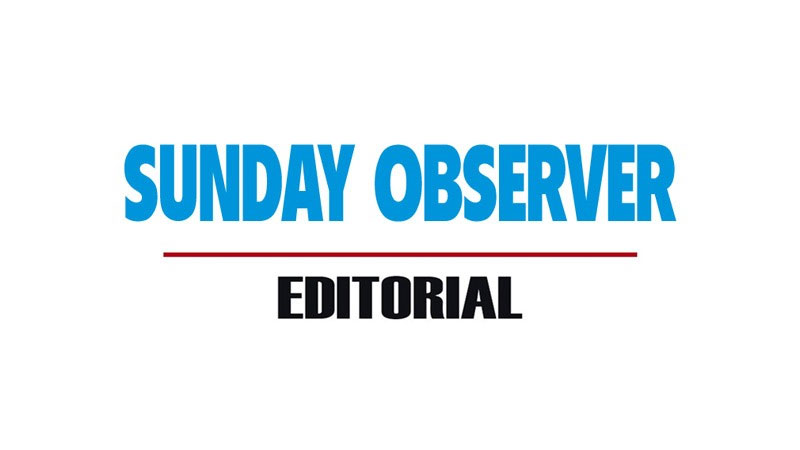July 2 is known as the date that divides the year in half. As this is a leap year, by July 2, 183 days of 2024 have already been added to the history books while there are exactly 183 days to go before 2025 dawns. A special session of Parliament has been called on such an important day.
A country that was on the verge of collapse two years ago, now leads a mostly comfortable existence. That did not happen automatically. Economic growth does not take place in a vacuum. It does not happen through mere talk. There are strategies and methods that make it happen. Many countries have gone through this painful process.
A post-mortem does not result in the resurrection of the dead body, but post-mortems are carried out nonetheless. Likewise, similar post-mortems can be conducted about the country’s economic downfall. But this does not necessarily rectify past economic sins. Many experts prefer to call it “economic mismanagement”. However, such reviews can be used to put the economy on the correct track.
Sri Lanka revelled in debt. The printing of money with gay abandon was another dubious pillar of the economy. This combination, though never a recommended economic management strategy, was used by all Governments to keep the electorate happy. When welfare measures reached up to the neck, they fell into the “debt” category. Berating the 225 Members of Parliament till the end of the world will not resolve these problems. The public, 22 million of them, are not entirely innocent in this economic debacle, as they have been used to get many things from food to fuel at subsidised rates, with barely any concern for the country’s economy. Nevertheless, the major portion of the blame should go to the ruling class. Deficiencies in debt management and servicing, excessive welfare measures, populist decisions aimed at electoral victories and even the Covid-19 pandemic compounded to adversely affect the country’s fragile economy.
Former President Gotabaya Rajapaksa resigned midway, since all these factors converged and exploded at a single point of time during his tenure. That was a moment of anarchy. It was an extremely dangerous moment in the history of the country. Some even conspired to burn Parliament. Many who were offered an opportunity to take over the reins of the country at this decisive juncture made various excuses and disappeared from the scene. They possibly thought, with some justification, that it would be the end of their political careers. Taking on the post of Premier at that time was deemed that dangerous.
But Ranil Wickremesinghe, then the sole Member of Parliament (MP) from the United National Party (UNP), readily accepted the challenge and took oaths as the Prime Minister, despite knowing the extent of the Herculean task that lay before him. He told the cold, hard truth to the people – that economic recovery will not be a walk in the park. He initiated crucial, even painful reforms, to stabilise the economy. Once he ascended to the Presidency, he did not deviate from these difficult but essential reforms, beginning with negotiations with the International Monetary Fund (IMF) on an Extended Fund Facility (EFF). Having restructured domestic debt, he took on the arduous task of foreign debt restructuring, a deal for which has now been reached with the Official Creditor Committee and China. Such deals are not reached on the basis of personal connections, but rather on the basis of the reform program undertaken during the past two years.
There is no room for experiments at this stage. The IMF is renowned as the world’s lender of last resort. If a country cannot economically recover even with IMF help, it can become a “Failed State”. However, that danger no longer exists as the country has reached a decisive threshold in its journey towards economic freedom. This is a great achievement, considering the precarious situation the country was in just two years ago.
It is in this context that Prime Minister Dinesh Gunawardena made a special request from Speaker Mahinda Yapa Abeywardena to convene a Special Session of Parliament to discuss the country’s next steps on July 2, in the middle of the year. The country’s future direction will be decided on at this session and also by the people at subsequent elections.
According to the “good news” the nation received on Wednesday from the Presidential lectern, the country has a grace period until 2043 to pay back the loans. This will also lead to a reduction in loan interest rates. Sri Lanka has successfully concluded two of the steps in the debt restructuring process – domestic and bilateral – while International Sovereign Bonds (ISBs) are yet to be restructured. Sri Lankan officials are optimistic that this will also go ahead smoothly.
The forward march of the country from that point onwards will depend on the deliberations and decisions of Parliament and thereafter, of the people in Presidential and General Elections which are slated to be held in the near future. The people must make a wise choice at these elections, without squandering the economic gains made so far. They must think of the future generations, who should inherit a country free from debt.









